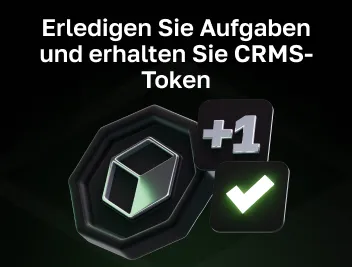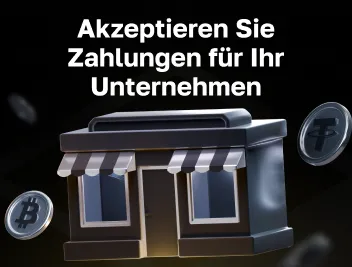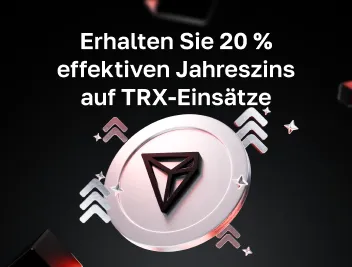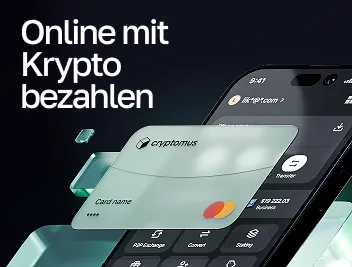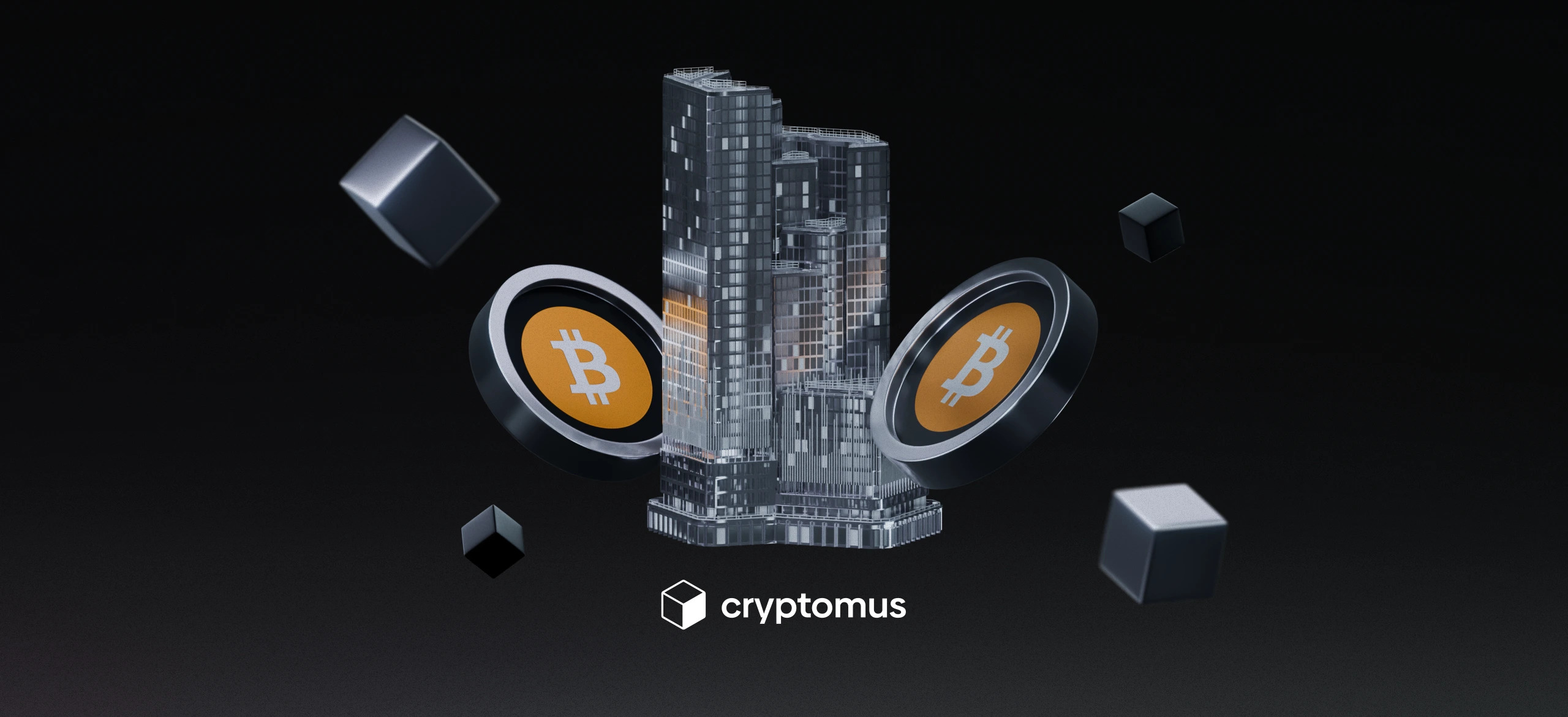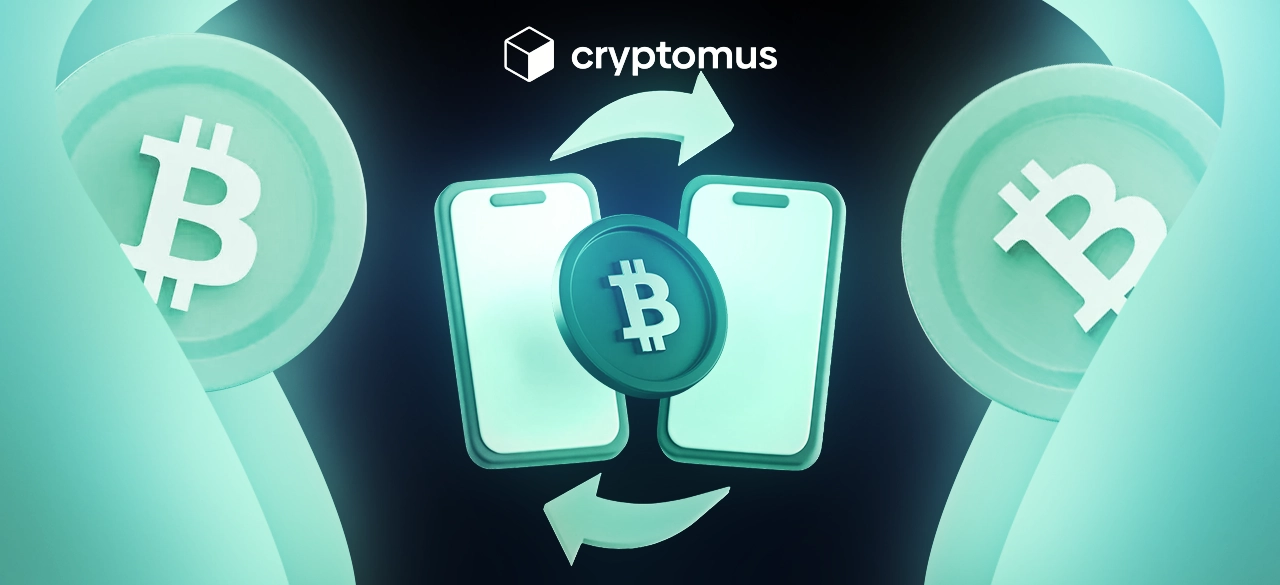
Was ist P2P und in welcher Beziehung steht es zu Bitcoin?
Inhaltsverzeichnis
P2P bezieht sich auf ein dezentrales Peer-to-Peer-Netzwerk, das sichere und private Transaktionen mithilfe kryptografischer Protokolle ermöglicht, bei denen Menschen über eine P2P-Plattform wie Cryptomus miteinander interagieren. Diese Interaktionen definieren, was P2P ist und wie es funktioniert.
Was ist eine P2P-Transaktion in der Praxis? Es handelt sich um einen Austausch von Kryptowährungen mit anderen Kryptowährungen oder mit Fiat zwischen Einzelpersonen, die eine P2P-Plattform nutzen.
In diesem Artikel befassen wir uns mit dem, was P2P ist, untersuchen seine Mechanismen und Auswirkungen, insbesondere im Kontext von Kryptowährungen wie Bitcoin, und wie P2P das Bitcoin-Netzwerk antreibt. Warten wir nicht länger, um diese informative Reise zu beginnen.
Wie P2P das Bitcoin-Netzwerk antreibt
P2P-Netzwerke sind für die Stärkung des Bitcoin-Netzwerks von grundlegender Bedeutung. Diese dezentrale Architektur, die das Wesentliche eines P2P-Systems optimiert, ermöglicht sichere, vertrauenswürdige Transaktionen und fördert die Widerstandsfähigkeit gegenüber Zensur und zentraler Kontrolle. Die Funktionsweise von Bitcoin, angetrieben durch die P2P-Technologie, lässt sich wie folgt beschreiben:
• Knotenkommunikation: Das Herzstück des Bitcoin-Betriebs sind Knoten und Computer, auf denen Bitcoin-Software ausgeführt wird. Diese Knoten beteiligen sich an der P2P-Kommunikation, teilen Transaktionsdaten und führen ein synchronisiertes Hauptbuch, die Blockchain. Diese Peer-to-Peer-Interaktion stellt die Einheitlichkeit der Informationen im gesamten Netzwerk sicher und stärkt dessen Integrität.
• Datenredundanz: Die P2P-Architektur fördert die Datenredundanz. Mehrere Kopien der Blockchain sind auf zahlreiche Knoten verteilt. Dieser Aspekt, eine Reaktion auf die Stärken von P2P-Netzwerken, erhöht die Widerstandsfähigkeit des Netzwerks gegenüber Zensur und Misserfolg. Das Netzwerk bleibt auch dann funktionsfähig, wenn einige Knoten inaktiv werden, sodass neue Knoten nahtlos integriert werden können.
• Vertrauenslose Transaktionen: Wenn Sie verstehen, was P2P in der Kryptowährung ist, werden Sie auch verstehen, dass es vertrauenswürdige Transaktionen ermöglicht. Benutzer tätigen Transaktionen ohne die Notwendigkeit einer zentralen Autorität und schaffen Vertrauen durch Konsensregeln und kryptografische Methoden. Dieses System stellt die Transaktionsintegrität und die Knappheit von Bitcoins sicher und definiert, was P2P in der Kryptowährung bedeutet.
P2P-Börsen: Bitcoin direkt handeln
Um an Peer-to-Peer-Börsen teilzunehmen, insbesondere beim Handel mit Bitcoin direkt über die Cryptomus P2P-Plattform, beachten Sie die folgenden Richtlinien, die auf fundierten Erkenntnissen basieren:
-
Registrieren Sie sich bei Cryptomus: Besuchen Sie zunächst die Cryptomus-Website. Bei der Registrierung müssen Sie Ihre E-Mail-Adresse oder Telefonnummer angeben und anschließend den Anmeldevorgang abschließen.
-
Identitätsprüfung: Gehen Sie in Ihrem Dashboard zu „Einstellungen“ und wählen Sie „Personal Wallet KYC“ (Know Your Customer). Klicken Sie hier auf Verifizierung und befolgen Sie die Anweisungen, um den KYC-Prozess abzuschließen.
-
P2P-Wallet-Zugriff: Greifen Sie nach der Überprüfung auf Ihr P2P-Wallet zu und wählen Sie Jetzt handeln. Durch diese Aktion gelangen Sie zur Handelsoberfläche, wo Sie Ihr Händlerkonto verwalten und eine Bitcoin-Kaufanzeige auswählen können.
-
Sichere Transaktionspraktiken: Um eine sichere Transaktion zu gewährleisten, überprüfen Sie die Glaubwürdigkeit des Verkäufers. Suchen Sie nach Indikatoren wie Reputationsbewertung, Feedback, Transaktionsverlauf und abgeschlossener Identitätsüberprüfung. Sobald Sie sich von der Legitimität des Verkäufers überzeugt haben, können Sie Bitcoin mit einer bevorzugten Zahlungsmethode kaufen, sei es Kryptowährung oder Fiat-Währung.
Diese Schritte definieren zusammenhängend, was P2P-Handel im Bitcoin-Kontext ist, und demonstrieren den Transaktionsprozess auf Cryptomus.

Sicherheit und Anonymität bei P2P-Bitcoin-Transaktionen
Sicherheit bei P2P-Bitcoin-Transaktionen:
• Kryptographie: Das Sicherheitsgerüst von Bitcoin basiert auf fortschrittlichen kryptografischen Prinzipien. Öffentliche und private Schlüssel, integrale Bestandteile dieses Systems, werden zum Signieren und Verifizieren von Transaktionen verwendet. Dadurch wird sichergestellt, dass nur der rechtmäßige Besitzer des privaten Schlüssels Transaktionen von einer bestimmten Bitcoin-Adresse aus initiieren und die Frage beantworten kann, was P2P im Kontext der kryptografischen Überprüfung bedeutet.
• Dezentralisierung: Diese P2P-Struktur definiert nicht nur, was Peer-to-Peer-P2P ist, sondern erhöht auch die Sicherheit erheblich, und im Gegensatz zu herkömmlichen Finanzsystemen, die auf zentralisierte Behörden angewiesen sind, werden Bitcoin-Transaktionen von einem dezentralen Netzwerk von Knoten überprüft und aufgezeichnet. Diese Dezentralisierung macht es für einzelne Unternehmen äußerst schwierig, das Netzwerk zu manipulieren oder Bitcoins doppelt auszugeben.
Herausforderungen und Risiken bei P2P-Bitcoin-Transaktionen
Nachdem Sie nun wissen, was P2P in der Kryptowährung ist, besprechen wir die damit verbundenen Herausforderungen: Sicherheitsrisiken wie Verlust privater Schlüssel, Phishing, hohe Preisvolatilität, Transaktionsverzögerungen, regulatorische und rechtliche Probleme, Gegenparteirisiken, Datenschutzbedenken, technische Probleme und Skalierbarkeitsprobleme.
Trotz der Herausforderungen und Risiken, die mit P2P-Bitcoin-Transaktionen verbunden sind, ist es wichtig zu erkennen, dass sich der Kryptowährungsraum ständig weiterentwickelt und verbessert. Die Bitcoin-Community und die Entwickler arbeiten aktiv daran, viele dieser Probleme anzugehen und innovative Lösungen zu finden.
Vorteile von P2P im Bitcoin
• Globale Zugänglichkeit: Das globale P2P-Netzwerk von Bitcoin ermöglicht globale Transaktionen ohne Währungsumrechnung oder internationale Bankintermediäre, sodass Benutzer mit jedem weltweit interagieren können.
• Resilienz: Die dezentrale Natur des Bitcoin-Netzwerks macht es resistent gegen Netzwerkstörungen oder Angriffe.
• Geringere Transaktionskosten: Bitcoin-Transaktionen sind kostengünstiger als herkömmliche Bank- und Überweisungsdienste, insbesondere bei grenzüberschreitenden Überweisungen.
• Finanzielle Inklusion: Diese Transaktionen ermöglichen die finanzielle P2P-Inklusion für diejenigen ohne traditionelle Bankdienstleistungen, sodass jeder mit einer Internetverbindung am Bitcoin-Netzwerk teilnehmen kann.
Zukünftige Innovationen in der P2P-Bitcoin-Technologie
Die Zukunft der P2P-Bitcoin-Technologie verspricht verbesserte Skalierbarkeit, Datenschutz und Benutzerfreundlichkeit. Innovationen wie das Lightning Network zielen darauf ab, die Skalierbarkeitsprobleme von Bitcoin zu lösen, indem sie schnellere und kostengünstigere Mikrotransaktionen ermöglichen. Verbesserte Datenschutzlösungen wie Taproot- und Schnorr-Signaturen bieten eine robustere Anonymität. Darüber hinaus werden Fortschritte bei benutzerfreundlichen Wallet-Schnittstellen und dezentralen Anwendungen dazu führen, dass Bitcoin einem breiteren Publikum noch zugänglicher wird.
Während sich das Ökosystem weiterentwickelt, wird die P2P-Bitcoin-Technologie wahrscheinlich die Schaffung eines effizienteren, sichereren und integrativeren Finanzsystems erleichtern.
Machen Sie das Beste aus P2P in Ihrem Bitcoin-Erlebnis
Um die P2P-Technologie in Bitcoin zu optimieren, wählen Sie seriöse Plattformen, führen gründliche Recherchen durch, überprüfen Gegenparteien, verwenden sichere Wallets, bleiben über regulatorische Änderungen auf dem Laufenden, übernehmen Datenschutzpraktiken und engagieren sich mit der Bitcoin-Community für Best Practices.
Tipps für P2P-Bitcoin-Transaktionen
Sobald Sie verstanden haben, was eine P2P-Zahlung und eine P2P-Transaktion ist, werde ich Ihnen einige wichtige Überlegungen geben, die es Ihnen ermöglichen, Ihre Bitcoin-Transaktionen sicher zu verbessern:
Priorisieren Sie die Sicherheit, indem Sie Hardware-Wallets, Zwei-Faktor-Authentifizierung und regelmäßige Software-Updates verwenden. Überprüfen Sie die Identität von P2P-Gegenparteien, definieren Sie Transaktionsbedingungen, seien Sie vorsichtig bei Phishing und bleiben Sie bei Netzwerküberlastungen geduldig.
Hier sind wir am Ende dieses Artikels darüber, was P2P-Handel und P2P-Zahlung sind und wie sie sich auf das Bitcoin-Netzwerk auswirken. Bitte zögern Sie nicht, unten einen Kommentar zu hinterlassen und Ihre Meinung dazu mitzuteilen.
Simplify Your Crypto Journey
Möchten Sie Kryptowährungen speichern, senden, akzeptieren, einsetzen oder handeln? Mit Cryptomus ist alles möglich – melden Sie sich an und verwalten Sie Ihre Kryptowährungsgelder mit unseren praktischen Tools.
Erste Schritte
